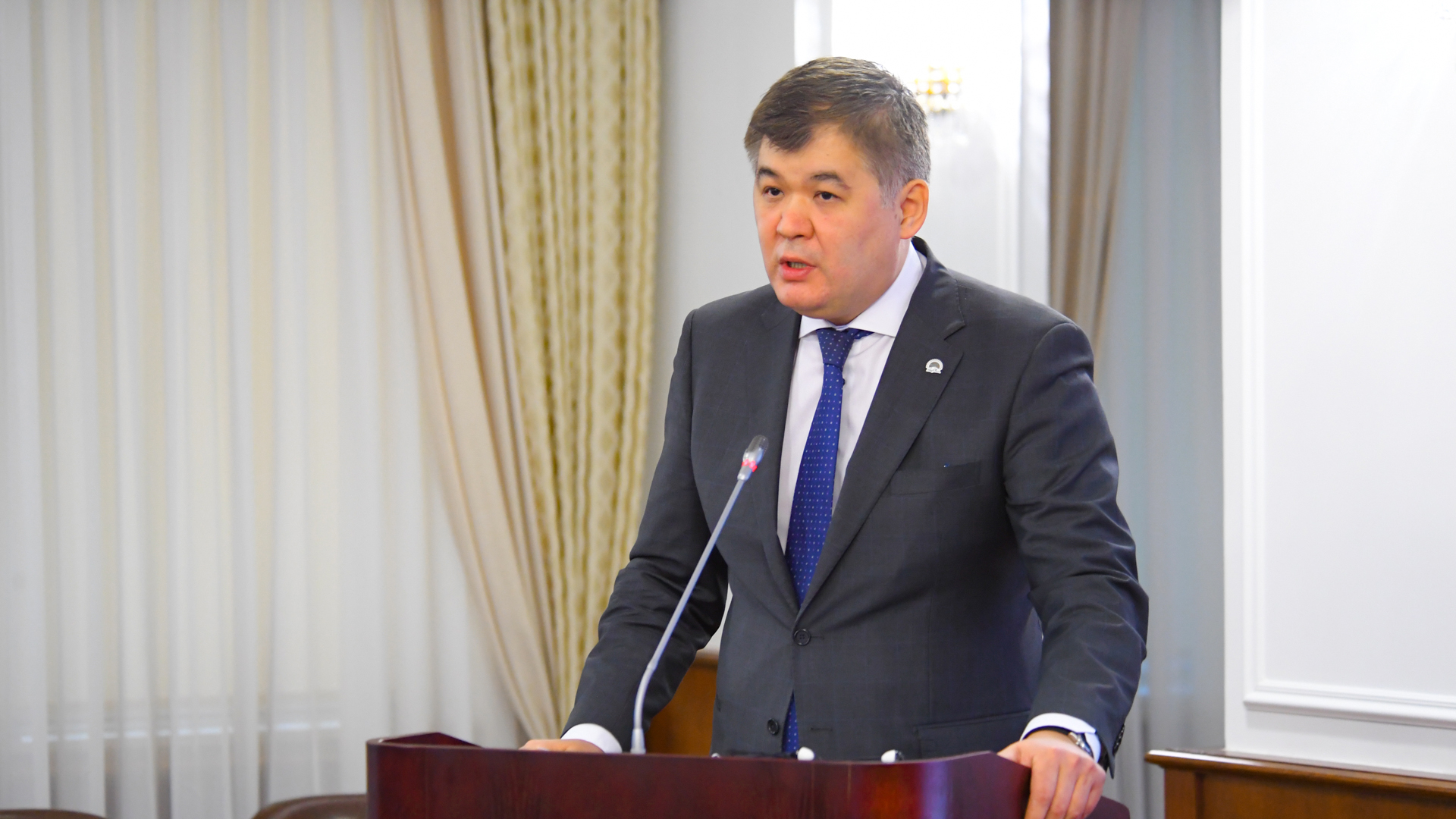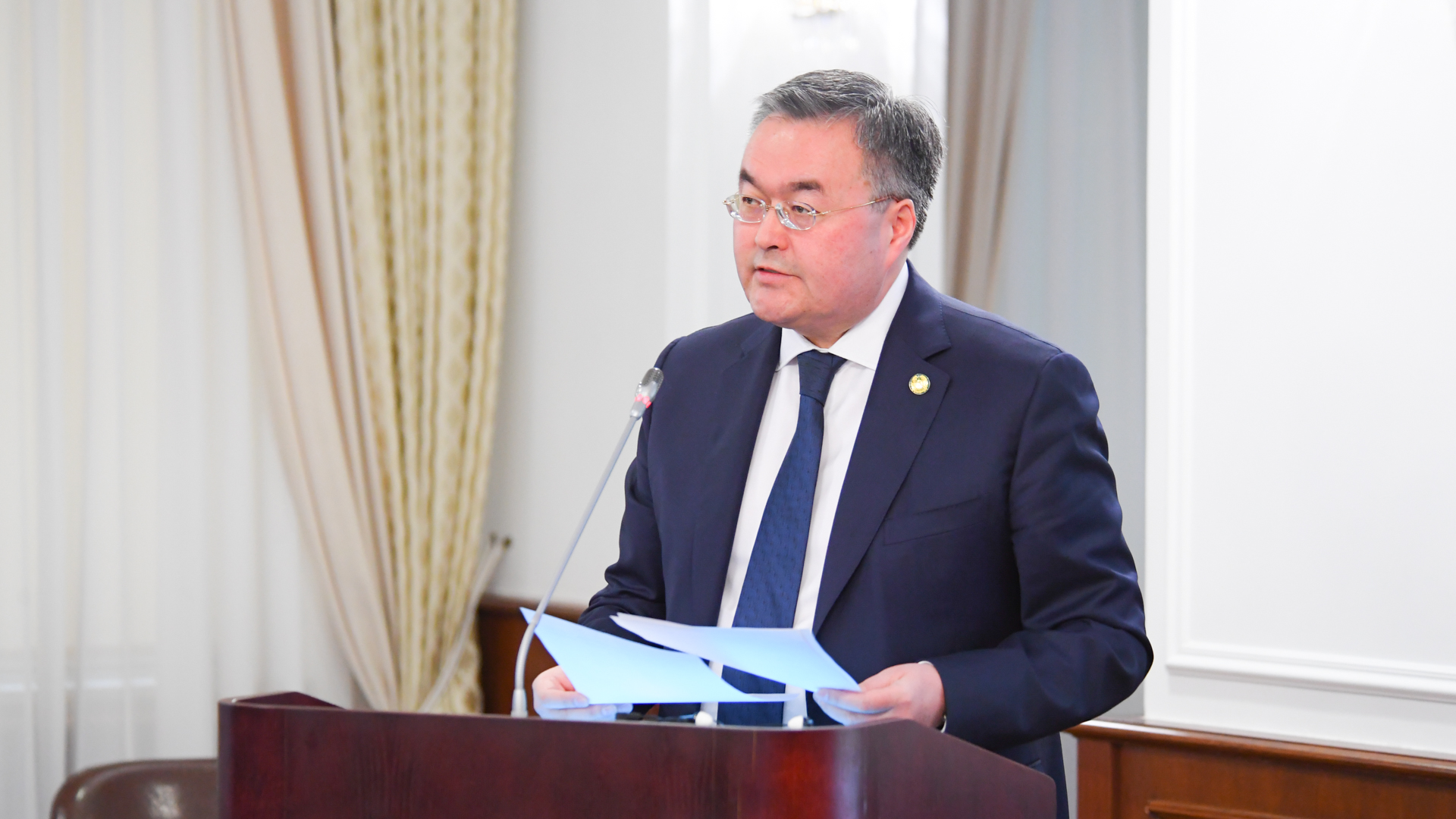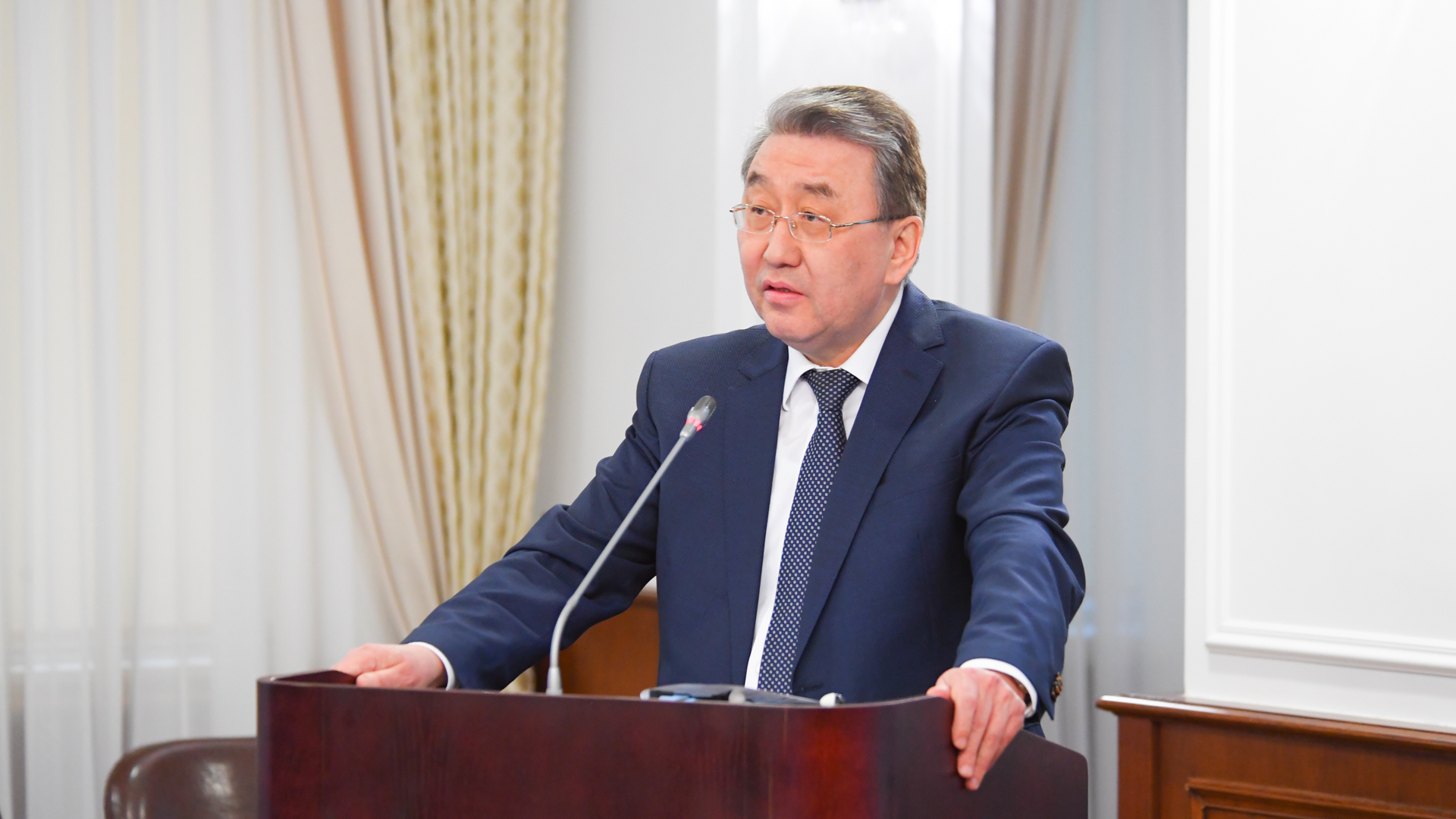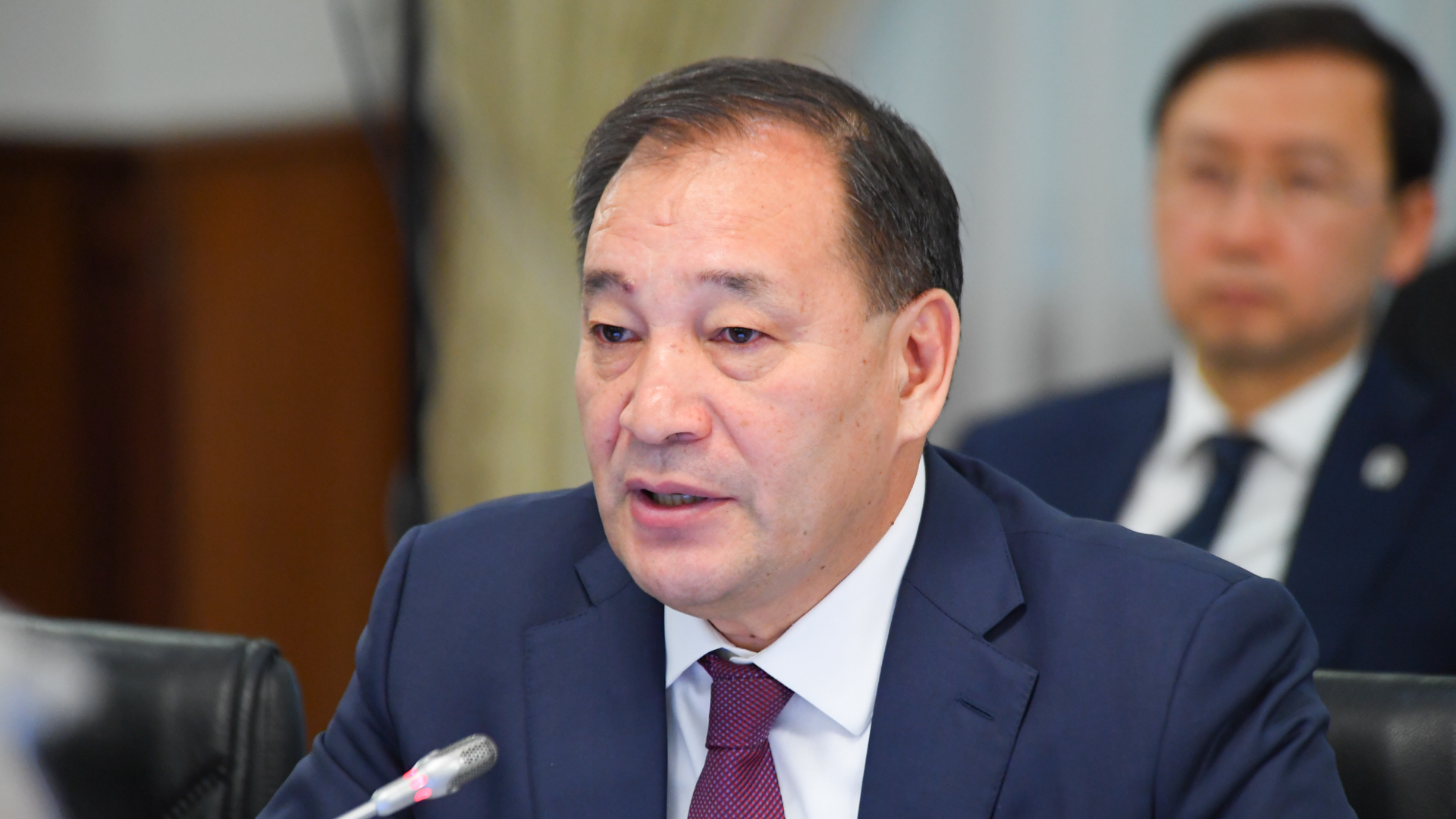02 March 2020, 11:09

At the Government session chaired by Prime Minister Askar Mamin, measures to prevent the spread of coronavirus infection in Kazakhstan were reported by the Minister of Healthcare Yelzhan Birtanov and Minister of Foreign Affairs Mukhtar Tleuberdi, Vice Minister of Industry and Infrastructure Development Berik Kamaliev, Deputy Prime Minister Yeraly Tugzhanov.
The Minister of Healthcare Yelzhan Birtanov reported that 88,571 cases of pneumonia caused by COVID-19 have been registered in the world today, 1,951 cases over the last 24 hours, daily growth amounted to 2.25%. Including in the People's Republic of China — 80,174 cases of pneumonia were registered, over the last day — 206 cases (daily increase was 0.25%). 44,518 people (55%) were discharged with recovery. 32,741 patients remain in hospitals.
In addition to China, 8,397 confirmed cases were reported in 43 countries. The largest number of cases was recorded in South Korea, Italy, Iran, Japan with an average total increase of 30% per day.
“Since Jan. 6, 2020, the Ministry of Healthcare has implemented three stages of reinforcement to prevent the importation and spread of coronavirus infection in the Republic of Kazakhstan,” said Birtanov.
At the first stage, the decree of the Chief State Sanitary Doctor Zhandarbek Bekshin strengthened the sanitary and epidemiological control at checkpoints across the state border, and conducted training exercises. In addition, medical monitoring was provided for persons arriving from China. The necessary reserves of personal protective equipment, prevention and treatment have been formed. Awareness-raising campaign among the population has also been launched.
On January 31, the second stage of strengthening the sanitary-epidemiological control began. According to the order of the Ministry of Health:
Since Feb. 20, the ministry have launched the third stage of reinforcement to prevent the importation and spread of infection.
“A methodology has been developed and implemented to rank countries into three categories, depending on the degree of risk of the spread of coronavirus infection. Depending on the level of risk, appropriate medical monitoring have been established for people arriving from countries that are a dangerous coronavirus situation,” informed Birtanov.
Country assessment is carried out around the clock and includes a number of criteria, such as the number of cases of infection in the country, incidence rate, infection growth rate, and others.
Since March 1, 2020, the ministry has introduced the fourth stage of strengthening. By the Decree of the Chief State Sanitary Doctor of Kazakhstan, Iran, South Korea, Japan, Italy, Hong Kong SAR (China), Taiwan (China) and Macau SAR were assigned to the countries of the first category in addition to the PRC.
“Persons arriving from the PRC, as well as Iran will be placed in quarantine for 14 days, and then they will be under medical supervision for another 10 days after discharge,” the minister of healthcare informed.
Persons arriving from other countries of the first category (South Korea, Japan, Italy, Hong Kong SAR, Taiwan and Macau SAR) will be placed in home quarantine for 14 days. But by the decision of the sanitary service, these persons can be quarantined in a medical facility.
Persons arriving from countries of the second category within 14 days will be under medical supervision “at home” followed by a 10-day call.
Persons arriving from countries of the third category will be remotely monitored by phoning for 24 days.
Local executive authorities need to ensure close monitoring of all arrivals.
At the same time, in order to implement the order of the Head of State on taking comprehensive measures to protect the health of citizens, the ministry of healthcare, together with state bodies, developed an Algorithm of actions for the detection and spread of coronavirus infection in the Republic of Kazakhstan (“Plan B”).
Since Jan. 6, 2020, the Ministry of Healthcare have strengthened sanitary control at state border checkpoints — about a million people were examined.
Over 30 thousand arrivals have been taken for monitoring, today most of them have been removed from monitoring due to the expiration of the incubation period, 6,474 people remain under medical supervision.
“From Jan. 6 to the present, 186 people have been hospitalized with temperature and virus infection, 166 have been discharged, 20 people remain in hospitals. The diagnosis of coronavirus infection has not been confirmed, the results of laboratory tests are negative,” said Birtanov.
Testing is carried out by test systems produced in Russia, China and domestic. All tests are validated by WHO.
To date, 967 people have been laboratory tested, including 544 arrivals (evacuated) from China (Beijing and Wuhan) and Japan (Tokyo), as well as 423 hospitalized and contact persons. All results are negative.
Funds have been allocated from the Government reserve. The readiness of medical organizations was provided in case of detection of a patient with coronavirus infection and for quarantine of persons who arrived from countries disadvantaged by the infection. Stocks of test systems, medicines and medical devices, as well as personal protective equipment have been prepared.

Minister of Foreign Affairs of the Republic of Kazakhstan Mukhtar Tleuberdi, in turn, emphasized that the Ministry of Foreign Affairs is closely monitoring the situation with the spread of coronavirus infection in order to take prompt action.
So, in countries with a high epidemiological risk for the spread of coronavirus infection, foreign headquarters have set up operational headquarters, adopted algorithms for dealing with cases of evacuation of our citizens, and opened hotlines to provide advice.
Today, 480 citizens of the Republic of Kazakhstan have been evacuated from China.
Regular flights, pedestrian crossings, rail / road passenger transport with China are suspended. Since Feb. 3, 2020, the issuance of visas to all foreign citizens in China has been suspended.
Since March 5, 2020, flights with Azerbaijan are reduced and Iranian citizens are banned from entering Kazakhstan.
“Our citizens are recommended to refrain from visiting countries with high epidemiological risk,” Tleuberdi said.
According to reports, more than 95 thousand citizens of Kazakhstan are in these countries, including 35 thousand in Korea, 40 thousand in the United States, 5,100 in the United Arab Emirates, 5 thousand in Germany, and Great Britain — 3 thousand, in Italy — 1,800, in France — 1 thousand. Most of them are students, labor migrants, staff of foreign institutions and their families, tourists and businessmen.
“If the epidemiological situation worsens, the issue of evacuation of Kazakhstani citizens will be considered in a timely manner. I would like to emphasize that at present, among Kazakhstani citizens abroad, there are no cases of coronavirus,” the minister said.
Monitoring and analysis of the situation in countries with high epidemiological risk, as well as state response measures to curb the spread of coronavirus, is carried out.
The analysis shows that the following restrictive measures are taken by foreign countries:
“At the same time, foreign countries are taking preventive measures to mitigate the negative impact of the epidemic on the economy and private business. The ministry will continue to work in this direction,” Tleuberdi said.

Vice Minister of Industry and Infrastructure Development Berik Kamaliev reported on measures taken to prevent the spread of coronavirus in the transport sector.
Thus, in the field of air transport, all scheduled flights (34 flights per week) between Kazakhstan and China have been suspended since Feb. 3, 2020.
From March 1, 2020, the number of regular flights on the Nur-Sultan – Seoul and Almaty – Seoul routes was reduced from 9 to 3 flights per week.
Flights on the route Almaty – Tehran of the Mahan Air airline have been suspended since March 1, 2020, (1 flight per week). Since March 5, 2020, the flight Nur-Sultan – Baku is also suspended. The Almaty – Baku flight is limited from 5 to 1 flight, the Aktau – Baku flight from 7 flights to 1. Air route Nur Sultan – Tokyo — from 2 flights to 1.
“In connection with the suspension of these flights, passengers having tickets from March 1, 2020, for the above flights, they can arrange for the return of tickets at the place of purchase without penalty and in full,” Kamaliev informed.
In the field of passenger transportation since Jan. 27, 2020, all 13 regular bus routes with the People's Republic of China are suspended. Today, in the border areas, about 20 vehicles pass temporarily to storage warehouses daily. Since Feb. 10, all drivers crossing the border with China are under the supervision of doctors at the place of residence.
In conclusion, Kamaliev emphasized that all issues related to the coronavirus are under the daily control of the ministry.

Deputy Prime Minister Yeraly Tugzhanov noted that the Government Interdepartmental Commission has been established on an ongoing basis, which was created to strictly monitor measures to prevent the spread of coronavirus infection in Kazakhstan. During this period, 11 meetings were held, over 100 instructions were given to the relevant bodies. To date, health workers continue to educate the public. At the same time, Tugzhanov drew the attention of regional akimats to the need to strengthen sanitary disinfection in crowded places. Including — in educational institutions, religious sites, retail outlets, airports, railway and bus stations. This list should change as necessary.
Stay updated about the events of the Prime minister and the Government of Kazakhstan - subscribe to the official Telegram channel
Subscribe